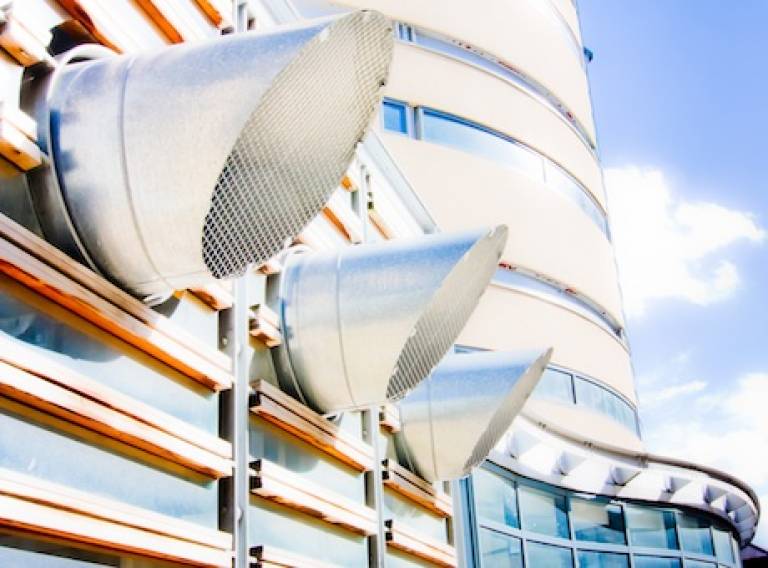Intel cities project moves into Central House with UCL-Energy
11 December 2013

The Intel Collaborative Research Institute for Sustainable and Connected Cities (ICRI-Cities) has recently joined the offices of the UCL Energy Institute at Central House.
ICRI-Cities – a collaboration between Intel Labs Europe, UCL and Imperial – is concerned with how to enable future cities to be more connected and sustainable. The approach is interdisciplinary, combining methods from computer science, the social sciences, interaction design and architecture to improve how cities are managed and maintained in order to ensure and enhance citizen well-being.
A key feature of ICRI-Cities is the “London Living Labs”, co-sponsored by the Future Cities Catapult, which is a city-scale environment that is instrumented to enable experiments to be carried out in situ. The London Living Labs is intended to provide a variety of rapid and dynamic experimentation environments including schools, parks and inner city neighbourhoods in which we observe sustainability as a lifespan measured over years.
The London Living Labs unite advanced technologies such as heterogeneous wireless sensor networks incorporating gateways, aggregators and edge based computing with an ethnographically informed research approach coupled with design science. Together, this multi-layered, people-centric approach helps us to better understand and design for a range of scenarios and use cases with communities, city officials and stakeholders.
The team has been hard at work preparing to launch the first three projects of the Living Lab including: Hyde Park, Brixton and Enfield. These, and other, projects are beginning to roll out now continuing through the following year, so we invite you to join us in exploring how London Living Labs can help guide the design, connectedness and sustainability of future cities.
- Hyde Park: One of the world’s great urban parks, Hyde park is a unique collaboration with the Royal Parks to explore the possibilities of understanding how the park is being impacted by a diverse array of environmental challenges including: drought and extreme weather conditions; the effects of climate change upon the Serpentine River; and how noise and light pollution is affecting birdsong.
- Enfield: This northern borough of London has since been proactive in engaging with ICRI to explore the use of lower cost, highly distributed air quality sensor networks to investigate improving traffic flow, driving both both behavioural and environmental intervention strategies, and increasing sustainable practices across the community.
- Brixton: A community-led project, ICRI is exploring: how can future cities sustain sustainable behaviours through nudging citizens and community activities. The Brixton Listening Lab project is funded by UK Technology Strategy Board to explore how participatory-led urban interaction design processes can be used to enable behaviour change strategies in cities. We will begin with focusing on nudging walking behaviours in the urban environment as a way of countering air quality, improving health, and building community connectedness and placemaking through exploring the relationship between urban environmental challenges (air pollution, mobility, preventative health) with social challenges (socioeconomic and geographical tensions, technology access, public safety).
Find out more: Email hello@cities.io.
Written by Han Pham, IRCI-Cities
 Close
Close

